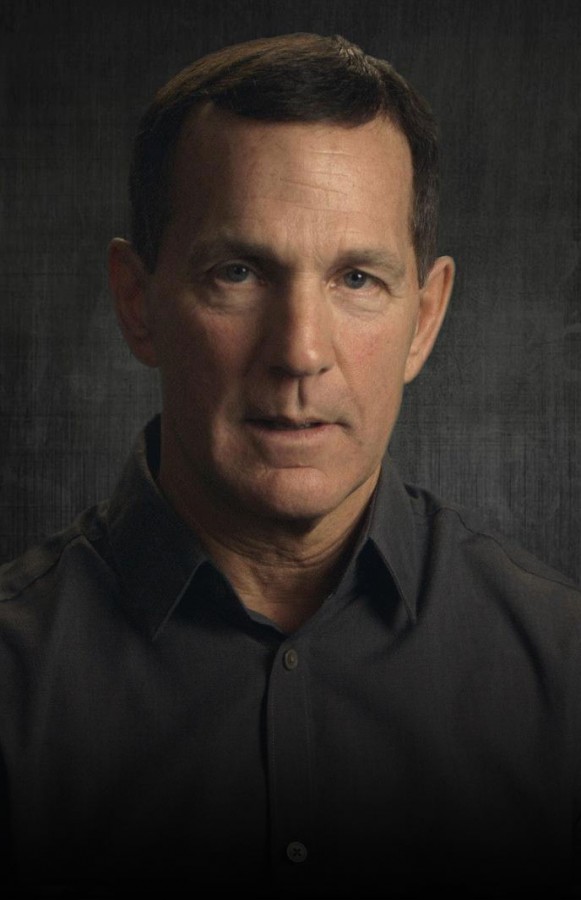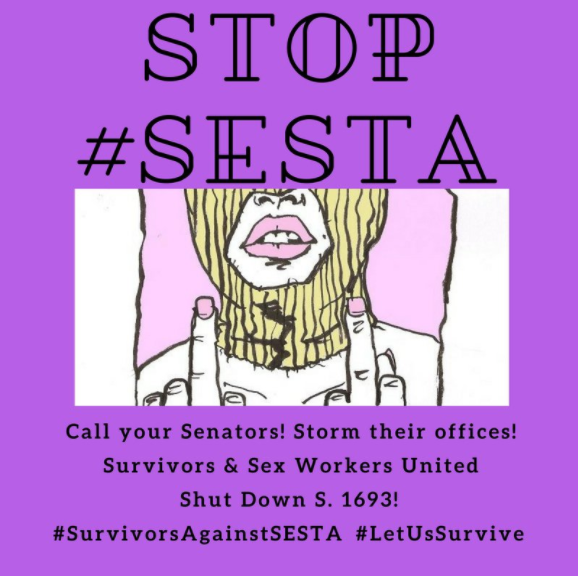I Don’t Care About Clients
This post was removed at the author’s request.
This post was removed at the author’s request.

UPDATE
5/1/15 Kamylla’s GoFundMe was taken offline and replaced with a Tilt fundraiser, which has also now been closed down. We will update if we hear news of another fundraising effort.
5/3/15 Here’s an updated fundraiser link.
There’s been no shortage of coverage of A&E’s 8 Minutes, the ostensible reality show in which cop-turned-pastor Kevin Brown makes appointments with sex workers and then has the titular amount of time to make a case for them to stop their work. Lane Champagne wrote here in December that
Of all the professions to produce potential sex work interventionists, law enforcement and clergy are at the very top of the Unsuitable list. Behind those two are literally every single other profession, because sex work interventions are vile exercises in the hatred and shaming of sex working individuals and shouldn’t exist.
Supposedly, women who want to leave sex work will be given help. From A&E’s website: “8 Minutes follows Pastor Kevin Brown and his Lives Worth Saving team as they help sex workers and victims of sex trafficking leave their dangerous situations behind to start over.” And how do they do that?
Last week, one woman, who goes by Kamylla, came forward on Twitter to hold the show’s producers accountable for promising her assistance in exchange for her appearance on the show, then leaving her twisting in the wind when she was arrested soon after, having returned to work from economic necessity when they didn’t provide the promised help in exiting the industry.
Kamylla received a call on her work number from the producers of the show, who immediately identified themselves as such (this is in contrast to the premise of the show, which implies that the women believe they are coming to a normal appointment, only to be met by Brown). She agreed to tape a segment for the show, in which she said she wanted help getting out of the business, and after the taping was told she’d soon hear back with more information and assistance.
She never heard back from them, and instead reached out herself, but no meaningful help was to come. Kamylla found herself broke and needing to work again. She posted an ad, using the same number the 8 Minutes producers had contacted her on, and was arrested in a sting. Now she was broke, frightened, and facing criminal charges, and when she reached out for help from 8 Minutes, Brown offered to pray for her.

When I first came out in print as a sex worker, it was pretty much decided by everyone that I was an idiot. That, or an opportunist and/or an attention whore—a fact one feminist blog called “disgusting.” In the comments sections of articles I have written, it is widely accepted that no one would pay to have sex with me and that I ought to shut the fuck up. I am frequently accused of making it all up. I’ve been insulted and undermined in every way and yet, amidst the hate mail, the most damaging criticism I’ve ever received came not from a New York Post reader or even a radical feminist (although I got hate mail from them, too) but from another advocate, a sex worker, someone I knew.
“Hi Melissa:
I hope you’re well. I read your Salon.com article. I appreciate that you’re sharing your story and advocating for sex workers’ rights. And I sympathize with your struggles.
I want to share a concern with you. In this article you make a statement about sex work, particularly prostitution being work that relies on dishonesty. In [an article published on Huffington Post] you similarly made a statement that the industry is “soul bankrupting.”
I can see how this may have been true for you, but it’s certainly not the case for all of us. For someone who is out of the business I can see how these statements would seem harmless. But for those of us still working, these are exactly the concepts that we’re trying hard to dismantle—the idea that we are somehow emotionally or intellectually compromised because we do this work.
I would never ask you not to speak your own truth. But I do think it would be helpful if these statements were framed in such a way that it’s clear this was only your experience, and not broad-sweeping truths about the business. Many of us come to this work honestly and operate from a place of truth and compassion. We deserve respect for this work. It’s problematic for an “expert” to portray us as liars with bankrupted souls. It’s especially hurtful when a colleague who presents herself as a dedicated advocate takes this stance.
Respectfully,
[redacted]

Both sex workers’ rights and anti-trafficking organizations have been watching a bill winding its way through Congress for a while. Here at Tits and Sass, we’ve had plenty to say about it. SESTA, the Stop Enabling Sex Trafficking Act, the Senate version of the bill, would have been disastrous enough—it would create a trafficking-related loophole in section 230 of the Communications Decency Act, the law which allows the internet to function by not holding service providers liable for user posting content. In practice, that would outlaw all sex worker advertising sites by opening them up to endless lawsuits, since any of them can be used for trafficking. That would send vulnerable people back into the streets and other dangerous venues and back into the hands of potentially abusive managers. Just think about the economic panic which followed the closures of Craigslist, MyRedBook, TNA, and Backpage’s adult section and multiply it a thousandfold if you want to imagine the impact this could have on the most defenseless members of our community. And as usual, when the sex trade is driven further underground, trafficking victims suffer as everyone around them is criminalized further, and they are further isolated with no one to turn to but their traffickers.
But the version that passed the House by an overwhelming majority last Thursday, FOSTA, the Allow States And Victims To Fight Online Sex Trafficking Act, was even worse. It criminalizes “promoting” and “facilitating” prostitution without defining these terms, placing vital sex worker online harm reduction resources which both voluntary and trafficked sex workers rely on at risk, such as the verification sites and bad call lists we use to avoid violent clients. This blog you’re reading now could fall in the crosshairs of this legislation as well, as could other sites of sex worker community, making it much harder for an already closeted and stigmatized group of marginalized people to forge vital social and political connections with each other. FOSTA also includes damaging new additions such as a retiring Republican congressman’s clause expanding the Mann Act. It is a bill that has morphed into something much broader and more hurtful than its cosponsors originally envisioned, with law enforcement, social services, the ACLU, EFF, the National Organization for Women, AIDS United and even anti-trafficking organizations as well as the Department of Justice opposing it. Yet representatives rushed to embrace it in a show of bipartisan cooperation.
It seems likely that the Senate debate and vote on SESTA will take place on Monday, March 12th. If SESTA passes the Senate, the next step would be reconciliation between FOSTA and SESTA into one no doubt catastrophic law. Today and tomorrow, just as sex workers, free speech organizations, and anti-trafficking organizations mobilized against FOSTA in the House, tweet storms and phone/fax/email jams are planned nationally against this Senate vote on SESTA. We urge all our readers to call their Senators and encourage their social networks to do the same. Scroll down to the bottom of this post for more information and a sample call script.
Longtime sex work and trafficking policy researcher and Reframe Health and Justice partner Kate D’Adamo has led the sex worker and trafficking survivor charge against the House and now the Senate vote. Tits and Sass caught up with her last weekend to ask her what every sex worker should know about FOSTA and SESTA.
How did you mobilize action on the House vote so quickly? Are there any other organizations and individuals whose efforts against FOSTA you’d like to highlight?
This is so far from a solo effort! None of this would have been possible without Red from Support Ho(s)e and the group MASWAN doing some of the most fantastic grassroots organizing work. On the national support and lobbying front, the National Center for Lesbian Rights and the National Center for Transgender Equality have truly shown up.
I think things mobilized so quickly because people have been waiting for a moment to plug in. A lot of times sex worker rights, and movement work in general, can feel intangible; SESTA isn’t and its impacts certainly won’t be. Which also points to how long we have been laying the groundwork. When I talk about what would be impacted, it’s because this movement has been doing harm reduction and anti-violence work for years, finding ways to turn online spaces into community and safety. When folks are connecting online and calling their reps and senators, it’s because we can stand on decades of sex workers demanding liberation and justice.